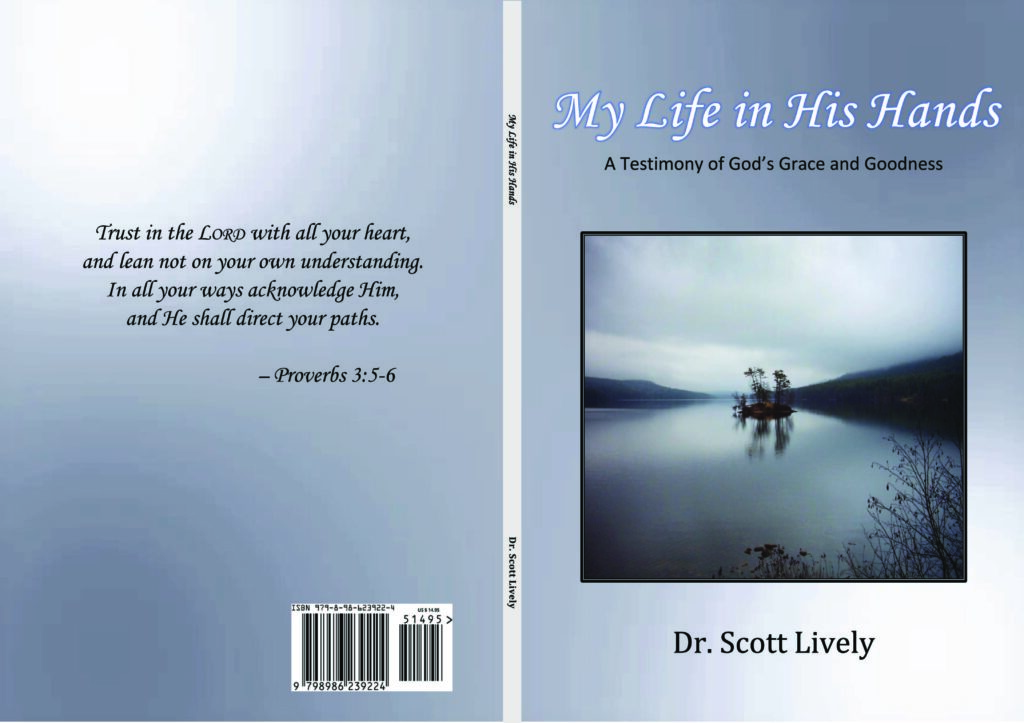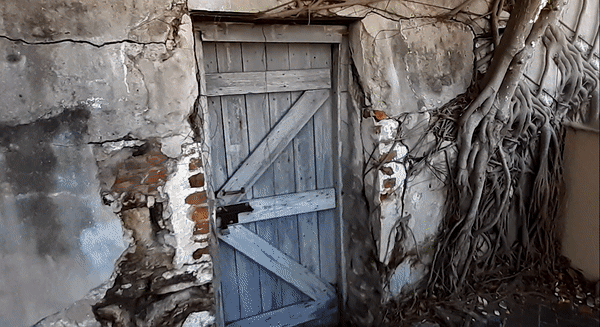
Many people who suffer from what was once called an “inferiority complex” tend to develop a habit of self-aggrandizement as a psychological defense mechanism. The more worthless such a person feels, the more they overcompensate, with clinical narcissism being the most extreme form. My own experience on this path never got quite that extreme, but I know the mentality of “inferiority” first-hand, having been raised under the intense and scornful scrutiny of a mentally-ill father from late childhood into middle adolescence.
The most significant event of many that fostered my sense of worthlessness was when my Dad, in a state of manic psychosis, barricaded himself in my childhood home over my having dropped out of school at age 15, and staged a day-long armed stand-off with the state police, which I watched from a neighbor’s house across the street. Shots were fired, but thankfully no-one was hurt, and in the end he was taken into custody and delivered to the state mental hospital, where he was incarcerated in the violent ward for several subsequent years, eventually becoming an outpatient under heavily debilitating medication.
I was the first person to try to enter my house after the police departed, but couldn’t get past the threshold due to the clouds of tear gas still hanging in the air. It was only when I turned around, my stinging eyes streaming tears of pain, that I saw the hundreds of people lined along the sidewalk across the street – and I screamed out in anger and humiliation “Get the F*** out of here!” This wasn’t in some big anonymous city but a small town of about 2000 people. To those neighbors, my outburst probably left many feeling confirmed in their opinion that I was just a “bad seed.” I’d been an alcoholic and drug abuser for three years by then – frequently seen hitchhiking around the county when I should have been in school, getting into all kinds of trouble with other wayward youths, four of us having formed a criminal gang that broke into houses seeking money for booze and drugs.
Because of my Dad’s family-destroying breakdown, my Mom divorced him and had to go back to work to support my five younger siblings. She was forced to move to a smaller house that literally had no room for me. Any decent and honorable kid would have found a job to help out, but not me. I cared about nothing but feeding my addictions. When the winter came and I was homeless and desperate, the family of a former schoolmate took me in, I created a crisis that split their family too. When I went to jail twice in my teen years, I knew I deserved every day of it. And when my first very short and shallow marriage to a beautiful and cultured rich girl ended (I was her “bad boy”) I knew I deserved that too. It was all my fault, and that failure and all the others haunted me as I spent the next few years drifting aimlessly around America, sleeping under bridges and begging spare change on street-corners. I lived recklessly and dangerously because my life had little value to me.
After my then ex-wife again declined to have pity and take me back (the third or fourth time I had circled back from my travels to try and woo her) I considered my tattered life over. When I briefly tried going out with a girl who looked like her, my residual self esteem drained away when she casually criticized my only source of pride, my writing – and that night I threw a decade-worth of daily journaling (filling many notebooks) into a dumpster – lost forever.
I had nothing left to live for, so in my warped, marijuana-clouded mind the solution was to go out into the woods with a couple of books on how to live off the land and become a wilderness-dwelling hermit. I lasted only about ten days, through a series of comic misadventures in which my pothead behavior was the joke. But in the midst of that, in the pit of despair, sitting for days alone in the woods under a plastic tarp in the rain, I found redemption in the most unexpected of places: a few simple lines of text in Henry David Thoreau’s Walden Pond. In these lines Thoreau admitted he had been rebuked by his friends for not using some of his wealth to help widows and orphans. Chastened, he became the financial benefactor of a needy widow. This anecdote triggered an epiphany in me and I knew that was what I must to to give meaning and purpose to my life. I would find a “widow” in need and devote my life to care for her.
I believe that God considered my wholly uncharacteristic self-less impulse to be a prayer for redemption, and He set in motion a sequence of events that led me to meet and marry my wonderful godly wife of now 40 years, Anne, the miraculous story of which fills an entire chapter in my first autobiographical book My Life in His Hands. And, of course, God blessed me through Anne far beyond anything I did for her. That blessing included total deliverance from my addictions in my prayer of total surrender to Jesus Christ. All of the many stories of miracles in this book were made possible by following that path.
Through all of my pre-Christian adventures I did not act like the loser I knew deep down I really was. It was just the opposite. I exploited the one gift from God I knew I had – the two-part gift of intellect and communication – and lived “by my wits” and my eloquence. I was insufferably arrogant and never lost a debate with anyone – even if I was wrong. I could talk my way out of or into almost anything, and impress virtually everyone I needed to impress: getting hired on the spot for most of the 40 or temporary jobs I held (until I got the first or second paycheck I needed to fund the next cycle of my implacable wanderlust).
But then, once my life truly was in His hands, that character flaw slowly changed until I learned to give God all the glory for everything good that came from my heart, soul, mind and strengths. I came to understand that ultimately, ALL sin is rooted in selfishness, and the most important lesson from the life of Jesus was that He exemplified perfect self-less-ness. The more we die to self, the more we look like Christ.
But I also learned that true humility looks very different from the pious false modesty that the world thinks is godliness. Far from it. The Bible tells us to do all things as unto Jesus. And Jesus tells us to do those things in full view of the world, letting our light so shine before men that they see our good works and give glory to the Father in Heaven. Paul told the church to use himself as a model, even while insisting we must boast only in God.
I turn 65 years old this month, and have been recently surprised to find myself feeling envious of the accomplishments of others, one in particular being a certain famous film director (why him I know not). As I was reading his filmography and feeling those pangs, I knew intuitively I could have lived a life of creative fame and fulfilment like that under other circumstances. But the closest I ever came to the prerequisite social privilege was a summer gig maintaining tennis courts at the ultra-exclusive prep-school Deerfield Academy, the entire time being acutely self-conscious about the gulf that separated me from the students there.
In reality, though, I think my life in Christ has actually been more diverse, interesting and fulfilling than those my flesh deigns to envy. And as I near the winter season of it I want to maximize the gifts God has given me to share all of it as a form of testimony to His goodness. Not as an act of pride, but one of humility.
I offer My Life in His Hands as the first volume of that work, for your use as a tool of evangelism to people like I once was – lost in suffering and self.



